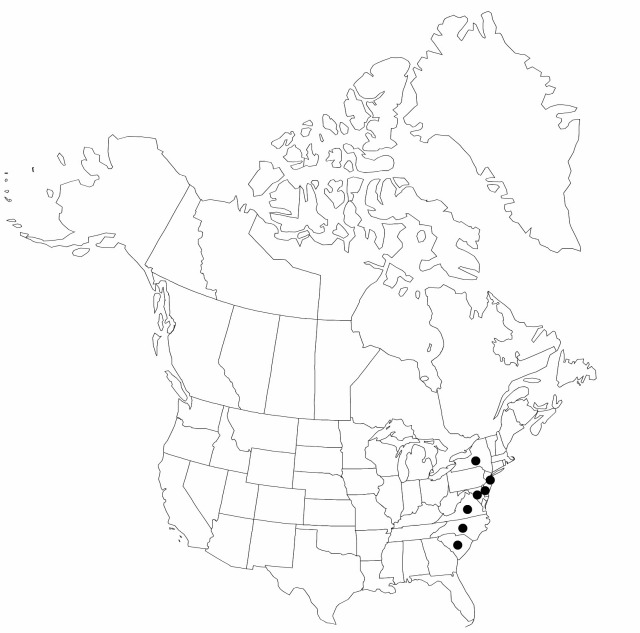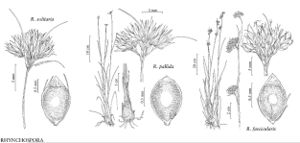Difference between revisions of "Rhynchospora pallida"
Amer. J. Sci. Arts, ser. 2: 7: 409. 1849.
FNA>Volume Importer |
FNA>Volume Importer |
(No difference)
| |
Revision as of 19:08, 24 September 2019
Plants perennial, cespitose, 40–100 cm, base bulbous; rhizomes stoloniferous, short, wiry. Culms erect or excurved, linear, leafy, trigonous, slender. Leaves slightly to much exceeded by culm; blades ascending, narrowly linear, proximally flat, 1–3 mm wide, apex trigonous, tapering gradually, setaceous. Inflorescences terminal; spikelet single, terminal cluster of spikelets crowded, hemispheric, 2.5 cm wide; leafy bracts linearsetaceous, much exceeding cluster. Spikelets whitish to tan, narrowly lanceoloid, (3.5–)4–5.5 mm, apex acuminate; fertile scales lanceolate, 3.5–4(–4.5) mm, apex narrowly acute, minutely awned or apiculate. Flowers: bristles vestigial or obsolete. Fruits 1 per spikelet, (1.9–)2–2.3 mm; body brown with pale center, lenticular, broadly ellipsoid, 1.5–2 × 1.5 mm, margins flowing to tubercle; surfaces longitudinally finely striate; tubercle depressedtriangular, 0.2–0.3(–0.4) mm.
Phenology: Fruiting late spring–fall.
Habitat: Sands and peats of clearings in pine flatwoods, barrens, and savannas
Elevation: 0–200 m
Distribution

Del., Md., N.J., N.Y., N.C., S.C., Va.
Discussion
Selected References
None.
